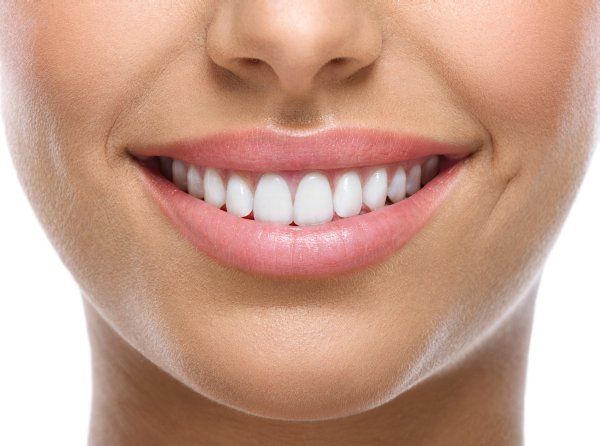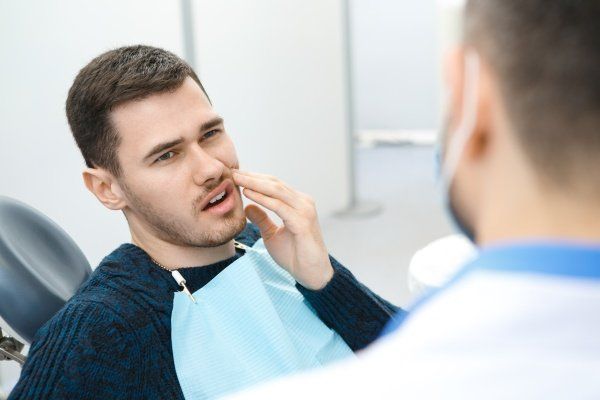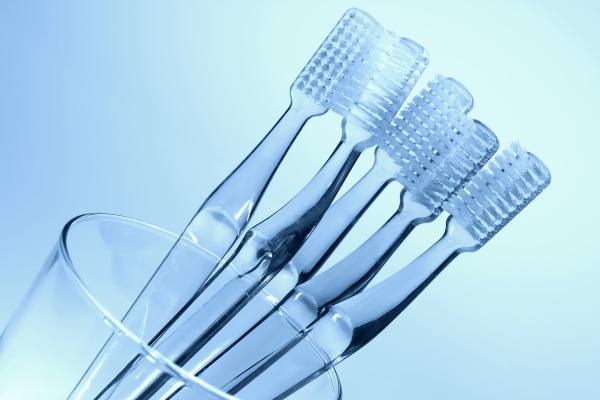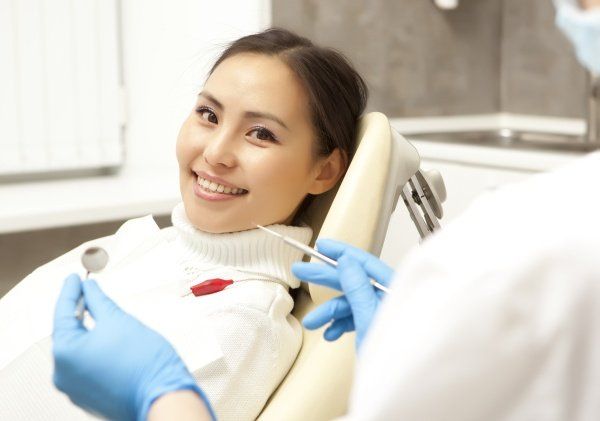When Is a Tooth Extraction Necessary
As a family dentist in Fort Lee, NJ, we are regularly asked, "When is a tooth extraction necessary?" This is an understandable question because no one wants to have a tooth pulled unless it is absolutely beneficial. We are not interested in extracting teeth unless absolutely necessary. In fact, if you damage a tooth, our preferred method of treatment is to restore it using dental veneers or dental crowns. There are times, however, where we do recommend visiting our dental office located at 810 Abbott Blvd Suite 203 Fort Lee, NJ 07024 for an extraction.
Request An Appointment
Contact Us
We will get back to you as soon as possible.
Please try again later.
When Is a Tooth Extraction Necessary
As a family dentist in Fort Lee, NJ, we are regularly asked, "When is a tooth extraction necessary?" This is an understandable question because no one wants to have a tooth pulled unless it is absolutely beneficial. We are not interested in extracting teeth unless absolutely necessary. In fact, if you damage a tooth, our preferred method of treatment is to restore it using dental veneers or dental crowns. There are times, however, where we do recommend visiting our dental office located at 810 Abbott Blvd Suite 203 Fort Lee, NJ 07024 for an extraction.
Request An Appointment
Contact Us
We will get back to you as soon as possible.
Please try again later.
You were in an accident
We can treat patients who have gotten into an accident and need to have immediate dental work completed. In some cases, dental damage is only part of the problem and immediate solutions are necessary. If possible, we will restore the tooth using dental bonding, dental veneers, or dental crowns. However, if the problem is urgent, a tooth extraction may be necessary. If you do need an emergency dentist, call (201) 224-6430 to schedule an appointment.
An infection has spread
If you have a bad dental infection, visit a dental office as soon as possible. It will be obvious if the infection has spread since you will experience intense discomfort that will make it difficult to bite down, chew, or even carry on with daily activities. We recommend coming in at the first sign of a toothache so we can treat the infection before it reaches the point of being severe. However, if you have delayed an appointment and are now in intense pain, you may need a tooth extraction just to get rid of the infection quickly. While not ideal, we can eliminate the source of the problem, prescribe you antibiotics, and then replace the tooth or teeth in the future with dental crowns and bridges or dental implants.
Check out what others are saying about our tooth extraction support services on Yelp: When Is a Tooth Extraction Necessary Fort Lee
The cost to restore the tooth is too great
We accept most insurance plans and can also discuss various payment options with you. However, we also realize that sometimes restorative dental work can be cost prohibitive. This is not an inexpensive teeth whitening procedure. Instead, removing an infection can require a full root canal and restoration afterward. If you are in a situation where you cannot afford a root canal, you may want to consider a tooth extraction and then replace the tooth later on when you have the funds to do so. This will address the immediate problem, which is to remove the infection.
Your wisdom teeth are impacted
One of the most common reasons parents ask, "When is a tooth extraction necessary?" is because their child is developing wisdom teeth. At Lori M. Nasif D.M.D., we do not always extract wisdom teeth. If there is enough room in the mouth for this third set of molars and they are growing in straight, they may be able to remain in the mouth. However, it does not work this way for most people. In fact, it is more common for our patients to visit our dental practice complaining that their wisdom teeth hurt. This can happen when they grow in impacted. The actual growth of them can cause discomfort and push other teeth forward (inconvenient if you or your child has had braces). As they grow in impacted or sideways, space will be created for food to become trapped, and this area often becomes infected. In this way, wisdom teeth can pose a health risk. As a cosmetic dentistry office, we can remove them.
The Extraction Process
While the first question we hear is, "When is a tooth extraction necessary?", the second is always about the process. We understand that our patients are often intimidated by the prospect of needing to have a tooth extracted. This is a process that most people grow up fearing, in part because of popular movies and television conveying an extraction as something truly horrible. The good news is that we can complete the extraction gently, quickly, and while keeping you comfortable. When looking for a "dentist near me" to complete an extraction, be sure to visit one who offers sedation. We do and we will use it to help you relax. Before we get started, you will be sedated and you will receive medication to numb the area.
If your tooth has grown in straight…
We can typically grasp the tooth, wiggle it, and gently but quickly pull it out. This process happens quickly, and afterward, we will clean the area and place gauze there to stop the bleeding.
If your tooth is impacted…
As a cosmetic dentist, we remove impacted teeth as a matter of course. This process, however, is far more complicated because an impacted tooth cannot be pulled. Instead, we have to cut open the gum tissue that surrounds the tooth so we can fully access it. In some cases, other bone or tissue has to be cut away so we have full access to the tooth and can pull it out. If necessary, we may need to pull it out one piece at a time. Afterward, we will clean the area, replace the gum flap, place sutures if necessary, and treat it with gauze.
The Recovery Process After a Tooth Extraction
At Lori M. Nasif D.M.D., we warn patients that they will be sore for several days and that they will experience some swelling. This is perfectly natural and can be controlled by taking ibuprofen and placing a cold compress or icepack on your face in the area where the tooth was extracted. We encourage our patients to do so for 15 minutes at a time. In preparation for your tooth extraction, you should buy plenty of JELL-O, yogurt, applesauce, and anything else you can eat without actually needing to chew. Within a couple of days, you should be able to add solids back into your diet but will need to be cautious until the area has healed completely.
Schedule an Appointment
To find out if you need a tooth extraction, call 201-224-6430 and schedule an appointment with Lori M. Nasif D.M.D.. We will be happy to answer any questions you have, schedule your procedure, and replace your teeth with dental implants or dental crowns and bridges once the extraction has been completed.
Definition of Dental Terminology
Cosmetic Dentistry
Cosmetic dentistry is generally used to refer to any dental work that improves the appearance (though not necessarily the function) of a person’s teeth, gums and/or bite.
Decay
Tooth decay is when the enamel of the tooth begins to decay and cause erosion from plaque and tartar on the teeth.
Dental Caries
Dental caries are also known as cavities and result from a lack of proper oral hygiene leaving plaque that forms tiny holes in the teeth.
Dental Checkup
A dental checkup is an appointment that involves cleaning the teeth, identifying any signs of infection and removing said signs of infection at least once every six months in the office.
Dental Filling
A dental filling involves restoring the structure of the tooth by using metal, alloy, porcelain or plastic to fill the tooth.
Dental Prophylaxis
A dental prophylaxis is a professional and detailed cleaning that involves the removal of plaque, calculus and stains from the teeth.
Dental Sealants
Dental sealants contain a resinous material that we apply to the chewing surfaces of the posterior teeth to prevent dental caries.
Dentist
A dentist, also known as a dental surgeon, is a doctor who specializes in the diagnosis, prevention, and treatment of diseases and conditions of the oral cavity.
Gingivitis
Gingivitis is the inflammation of gum tissue that results from plaque, other infections in the mouth and poor oral hygiene.
Preventive Dentistry
Preventive dentistry is the dentistry that focuses on maintaining oral health in order to prevent the spread of plaque, the formation of tartar and infections in the mouth.
Tartar
Tartar forms when plaque builds up on the surface of the teeth and calcifies into a hard surface that is much more difficult to remove and will require professional treatment.
Tooth Enamel
Tooth enamel is the protective visible outer surface of a tooth that contains the dentin and dental pulp.
Helpful Related Links
- American Dental Association (ADA). Glossary of Dental Terms. 2015
- American Academy of Cosmetic Dentistry® (AACD). Home Page. 2015
- WebMD. WebMD’s Oral Care Guide. 2015
About our business, license, and website security
- Lori M. Nasif D.M.D. was established in 2009.
- We accept the following payment methods: American Express, Cash, Check, Discover, MasterCard, and Visa
- We serve patients from the following counties: Bergen County
- We serve patients from the following cities: Fort Lee, Leonia, Palisades Park, Englewood, Edgewater, Englewood Cliffs, Alpine, Cliffside Park and Washington Heights, NJ.
- National Provider Identifier Database (1437283686). View NPI Registry Information
- Healthgrades. View Background Information and Reviews
- Norton Safe Web. View Details
- Trend Micro Site Safety Center. View Details
Related Topics
Recent Posts





Schedule your appointment today!
We are committed to providing quality healthcare to families located in the Fort Lee area and treat patients of all ages.

